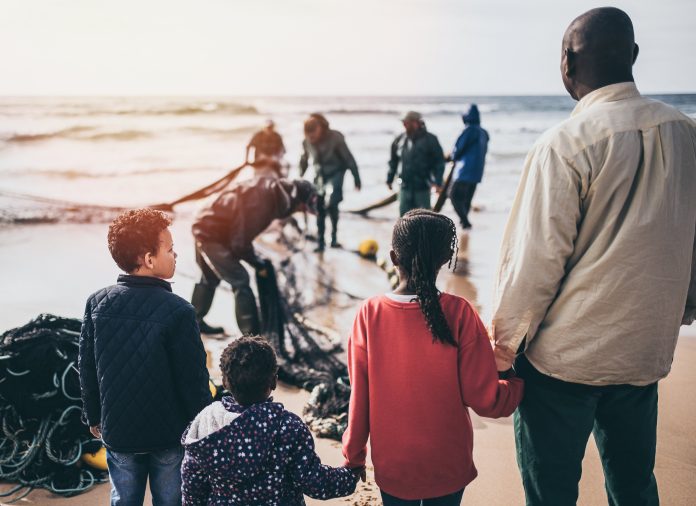
Authors: Elina Jokinen, Edris Bayan Shenwarai, Ahmed Zaidan, Ellen Nieminen and Johanna Hiitola
When discussing family reunification of migrants, the focus is often in the situations of married couples or children. In these instances family reunification process is straight forward, although the latest restrictions have made these processes nearly impossible for migrants. However, sibling relations often receive less attention in these discussions even though they might be crucial for the well-being of refugee youths.
In the research project “Family Separation, Immigration Status and Everyday Safety” funded by the Academy of Finland, we have heard dozens of stories on what it feels like to live away from one’s family. So far we have conducted 40 interviews with adults (25) and unaccompanied refugee youths (15). This blog text is based on interviews where refugee youths – both those who have arrived as minors and those over the age of 18 – discuss the role of sibling relations. We were surprised by how strongly the theme of responsibility over younger siblings was present in these narratives. An older brother or sister is often an important source of support and safety for their siblings in the refugees’ country of origin. The father of the family might be deceased or parents are unable to look after their children due to difficult life circumstances, while the children themselves may be forced to work under poor conditions. If the family ends up escaping abroad, children might get separated from their parents. In the case of parental separation the only support for the younger refugees are often their older brothers or sisters.
In many instances, the younger sibling is entirely dependent on their older sibling. One interviewee explains how he was separated from his little brother in Turkey; the smuggler forced him at gunpoint on a rubber boat set on a long journey across the Mediterranean, while the little brother was left on the shore all by himself. After a year of uncertainty, the brothers found each other through the Red Cross family tracing service. However, the story did not end there – despite several trips to Turkey, petitions, complaints and countless forms filled, the little brother is still in Turkey with no chance to attend school and without family care.
Occasionally siblings manage to arrive to Finland together, which, however, does not mean they are treated as a family. In the interviews we found cases where siblings have been separated right at the Finnish border and sent to different reception centers to live among their peers. This is extremely traumatic to siblings and demonstrates a lack of understanding when it comes to the role of siblings in the everyday safety of refugee youths.
Separation from family paralyzes life
In many cases, only one of the family’s children ends up seeking refuge. For a young refugee arriving to Finland alone, separation from siblings is extremely grueling. An older sibling feels a same sense of responsibility over younger siblings as would a mother or a father. In addition, the parents may in fact also be a source of concern for the young refugee – it is not uncommon that parents burdened by hard circumstances are almost unable to function by the time they reach middle age. When a mother in charge of the young siblings can no longer get out of bed due to her weak legs, sending home money earned by not eating is no longer enough to protect the younger siblings.
How, then, to make sure your siblings receive proper care?
Concern over younger siblings can paralyze a refugee living in Finland in a serious way. As one interviewee stated: “life does not give a permission to dream”. This young man has barely reached the age of 18 himself, but his life’s biggest priority is to make sure that his 12-year-old brother receives everything he himself has no strength to dream of. However, guaranteeing a happy and balanced everyday life to siblings is often impossible when living far away in Finland. Moreover, when concern over loved ones is pressing on a daily basis, it is difficult to build one’s own life and future.
For many of the people we interviewed, a sibling is a person who one confides in when talking to parents does not feel like an option, a person who is a role model and someone whose success is a source of joy. Likewise, the distress of a sister or a brother is also the easiest to identify with. When a little brother is hungry somewhere far away, an older sister cannot enjoy even a bite of her meal. When a father commits suicide, it is hard to find words of comfort for a little sister left with her mother to the place from where the young refugee herself has escaped. It is about time to acknowledge that family does not imply merely the relationship between a parent and a child or two spouses. Unfortunately, Finnish immigration policy is ignoring these important relations and moving into a completely different direction.
This blog entry is the first part of a three-part multilingual series showcasing the results of the research project “Family Separation, Immigration Status and Everyday Safety”. The project investigates the impact of immigration policy restrictions in terms of experiencing and organizing everyday safety among vulnerable immigrants and their transnational families.
This article has been translated into Arabic, Dari and Finnish.
References:
Fingerroos, Outi, Tapaninen, Anna-Maria & Tiilikainen, Marja (2016) Perheenyhdistäminen. Kuka saa perheen Suomeen ja miksi? Tampere: Vastapaino.
Turtiainen, Kati (2012) Perhe pakolaisia vastaanottavassa sosiaalityössä. Teoksessa: Minna Strömberg-Jakka & Teija Karttunen (toim.) Sosiaalityön haasteet. Jyväskylä: PS-kustannus










